– Let’s sail to the Caribbean, baby, shall we? says Sorin casually whilst wrapping up preparations ahead of slipping the lines in upmarket Recife Marina, to sail 2250 nautical miles to Trinidad, the southernmost island in the Caribbean Sea.
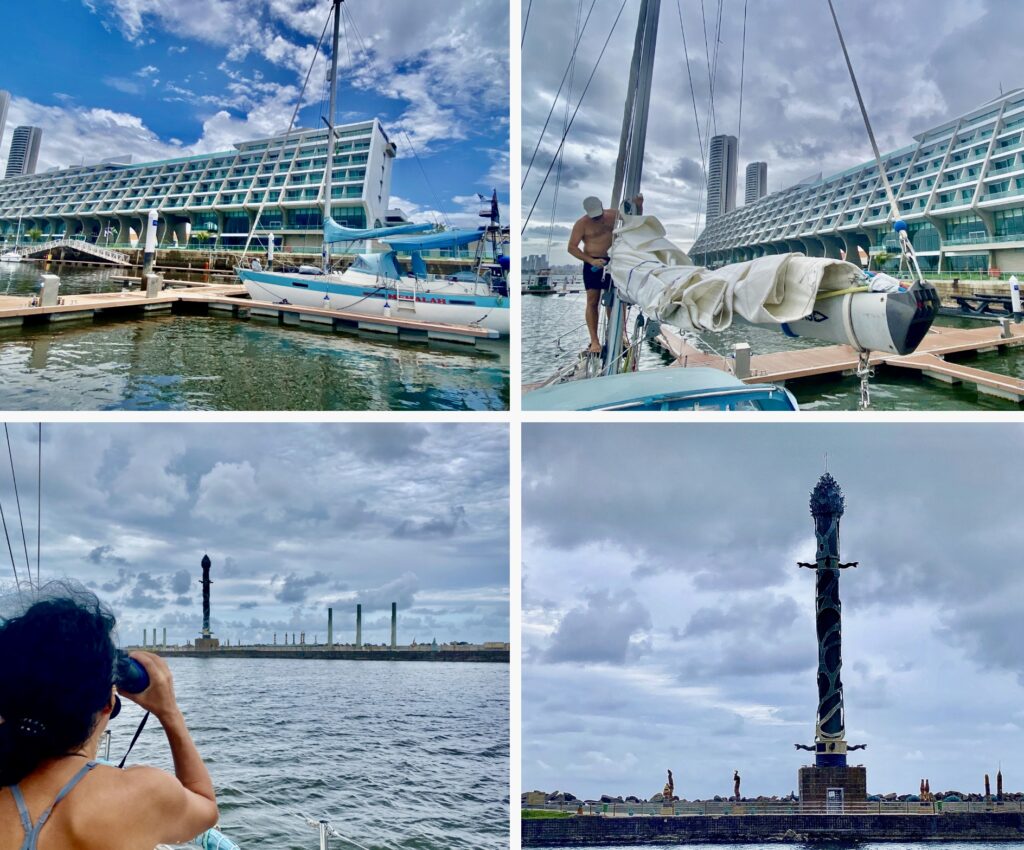
We have had a busy morning with admin stuff, ahead of going offshore again for a couple of weeks with no internet connection. Therefore, our departure had to be pushed to the afternoon. Preparations seemed to have been dragging on forever. By now, the Captain was getting very eager to be ‘on the road’ again.
In the days leading to our departure, we discussed the potential route to take in order to reach Trinidad. Offshore vs coastal. The Captain has a tendency to sail offshore. Understandably so, as this way we would avoid any traffic on shipping lanes running along the coast, and local fishing boats. But is this tactic always best?
Experience taught us that this may not always be the best approach. Looking back at the beginning of our offshore sailing, we remember one particular instance when we sailed off from Baiona, Spain to round the Portuguese Coast offshore. The sea state developed in such a thorny beast that we had no choice but to seek refuge on Tejo River. Smaller boats that took the coastal route rounded the Portuguese coast to reach Southern Spain with no problems.
With past experience in mind we decided to keep it simple and sail a direct course from Recife to Trinidad that would see us between 100 to 200 nautical miles away from the coast. This way we would also take advantage of the north going current running along the coast. This would give us an extra 1 to 3 knots in the light winds expected before crossing the Equator to reach the consistent north easterly trade winds.
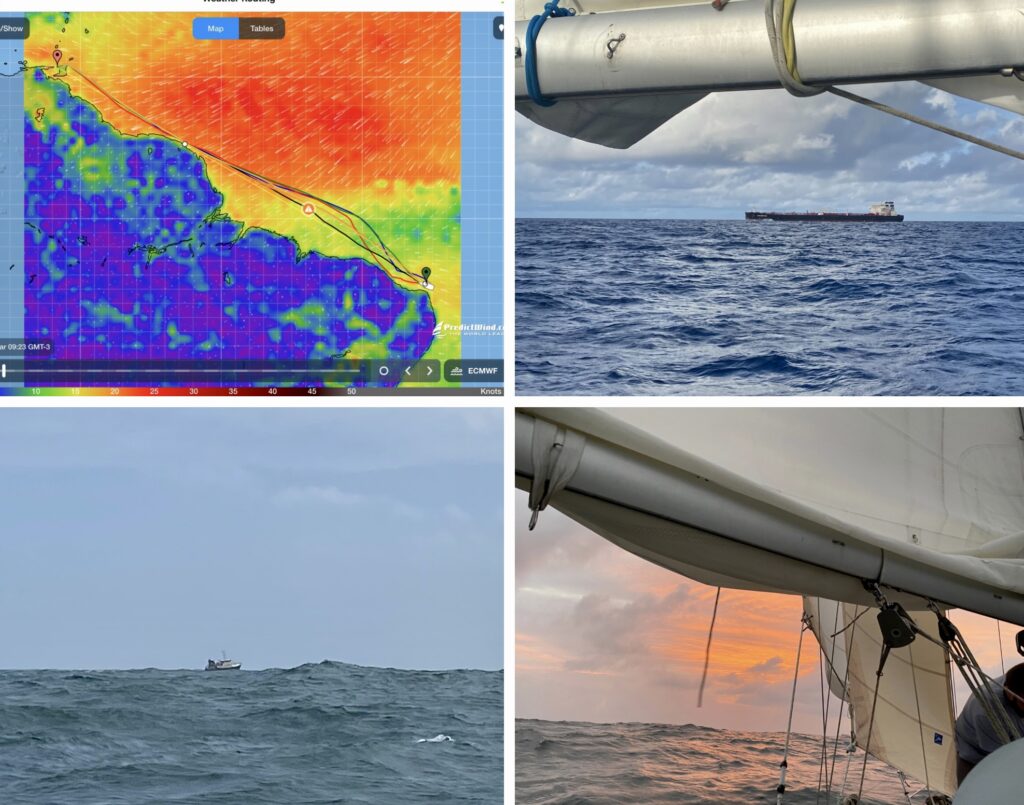
We had planned a pit stop on Devil’s Island, off French Guyana. However 80 nautical miles away we figured that we would be making landfall at night, so this plan was aborted.
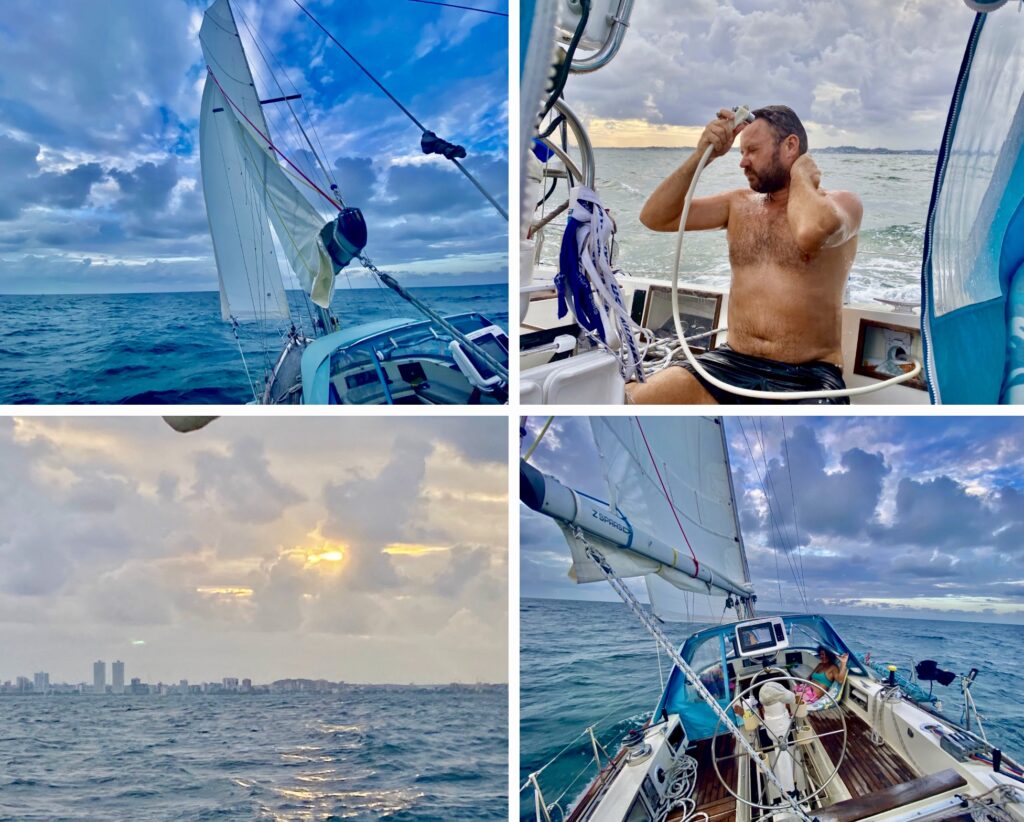
Once the head winds splashing waves in the cockpit on setting off were cleared, the days before crossing the Equator northbound were like sailing on a lake. Swell free, with a favourable current in a light breeze. These idyllic conditions were giving Mehalah the momentum needed to push forward under sail. Life aboard was normal as.
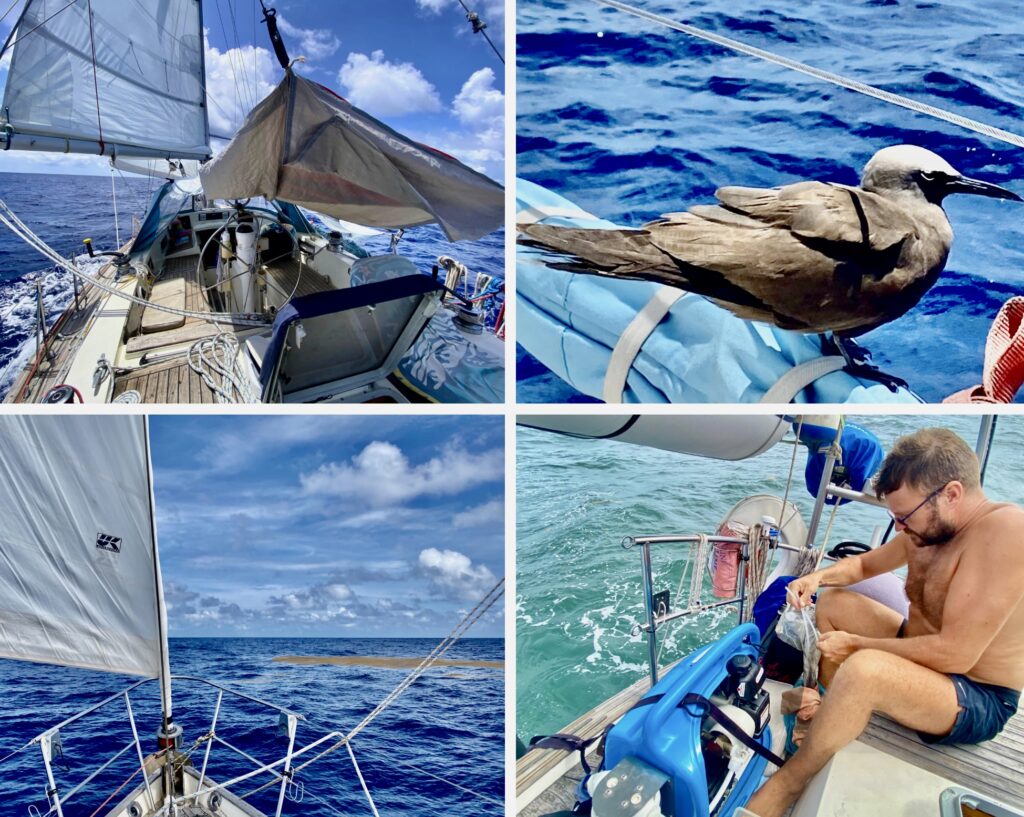
Sitting on deck in the shade, hiding from the scorching sun, Sorin reckoned that if someone new to sailing would be on this passage would rightly wonder what was all the fuss about sailing…Easy peasy! “Just wait and see” would be our reply.
The day we were going to cross the Equator northbound, we woke up to the sight of patches of Sargassum seaweed rounding Mehalah. We were most pleased to see familiar things again after 7 years sailing around the world.
The sight of Sargassum has always been a good omen. The sign of imminent success. Seven years ago, when we first saw Sargassum we will have crossed our first ocean. Now, as we were approaching the Equator northbound to close the loop sailing around the world.
The big day of crossing the Equator didn’t really pan out quite as expected. In sailing, as in life, things let you down when you need them most.
After setting off from Recife Marina one of our water tanks must have burst as the bilge pump was triggered continuously. By the time we isolated the port side tanks from the starboard side ones and vice versa, a significant amount of drinking water was lost, leaving us with just enough water to last for a few days.
We didn’t worry as we had the water maker. Only if it worked! It decided to have a fit on us when we needed it most. For the entire day Sorin had to turn it on again and again after it would shut itself down. Changed impellers, played with the pressure, changed the spar plug, swapped hoses around. Nothing worked! We eventually figured that it was the oil level misreading on the ever moving surface of the ocean.
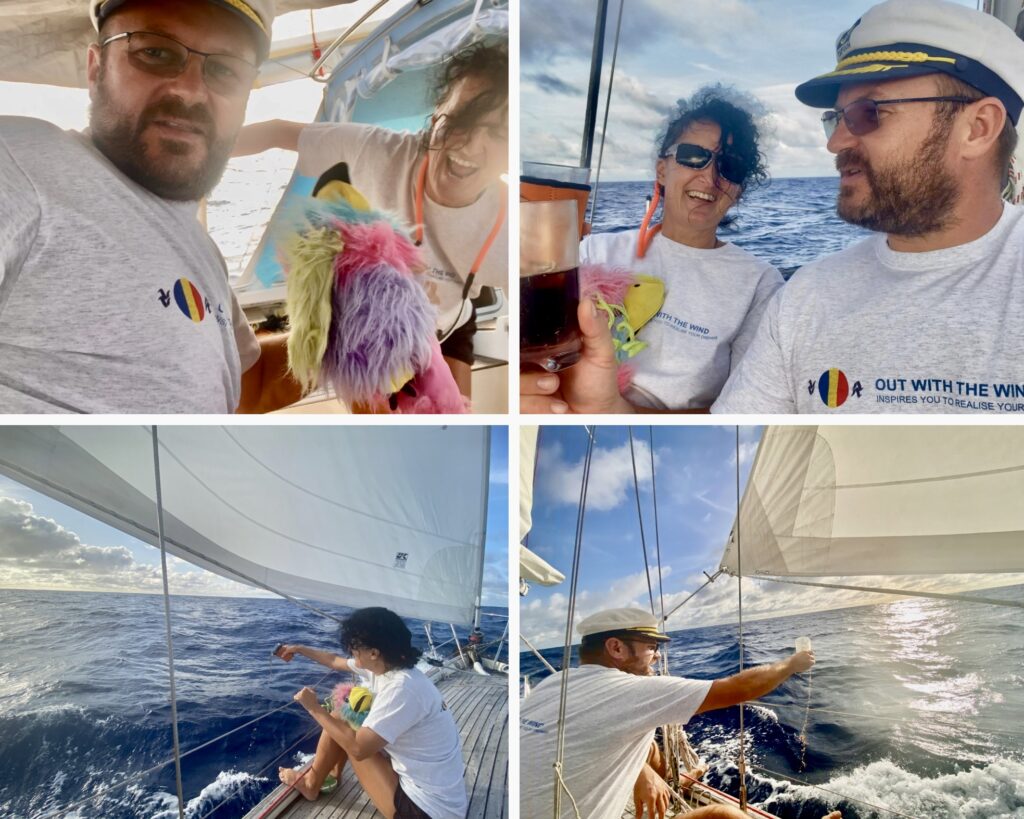
Once we crossed the Equator with due ceremony, like we flipped the page, the surrounding picture changed. Sea state started gaining momentum, squalls were creeping in like hooded hooligans. Back to ocean sailing. Claws were being sharpened!
It culminated that night in a biblical scale deluge. All the water that we struggled to make with the water maker that day we could have collected in a matter of minutes.
The unsettled weather continued for a few good days, with the biggest downpours happening at night.
On crossing the Equator, we temporarily lost the north going current, but northeasterly trade winds took over. These accelerated by repeated squalls were giving us enough wind – at times more than enough – to make good progress north.

The annoying sound of the howling winds returned with memories of adventures past.
Every piece of water and every point of sail comes with its up and downs. Beam on with a considerable swell is one of the shittiest points of sail that we experienced. It makes one feel most vulnerable!
Waves were violently hitting us beam on, sometimes breaking over limping Mehalah and making their way in. Considerable roll. Being snatched and partially thrown across the cabin, regardless of the grip’ strength. Everything taking off and landing on the cabin wooden floor leaving a nasty souvenir each and every time.
The only way we could fall asleep was when conking out with exhaustion. Such was the boat movement! We would, then, get a rude awakening… The rudest of awakenings was when in the middle of the night our coffee machine decided to take off flying around the galley like popcorn, landing with a bang that would wake one up from the death.
By the end of the passage, battered by tiredness and heat, everything would end up on the galley floor, with a full container of fine cous cous creating the most frustration and a near hit stroke whilst trying to contain the thousands slipping granules on a forever moving surface.
Approaching Trinidad at night was nerve racking. We had to navigate an oil extraction platforms minefield, including some unmarked targets. Thankfully these monstrous structures rising from the dark ocean in pitch black were strongly and colourfully lighten. Nevertheless a vigilant watch was a must.
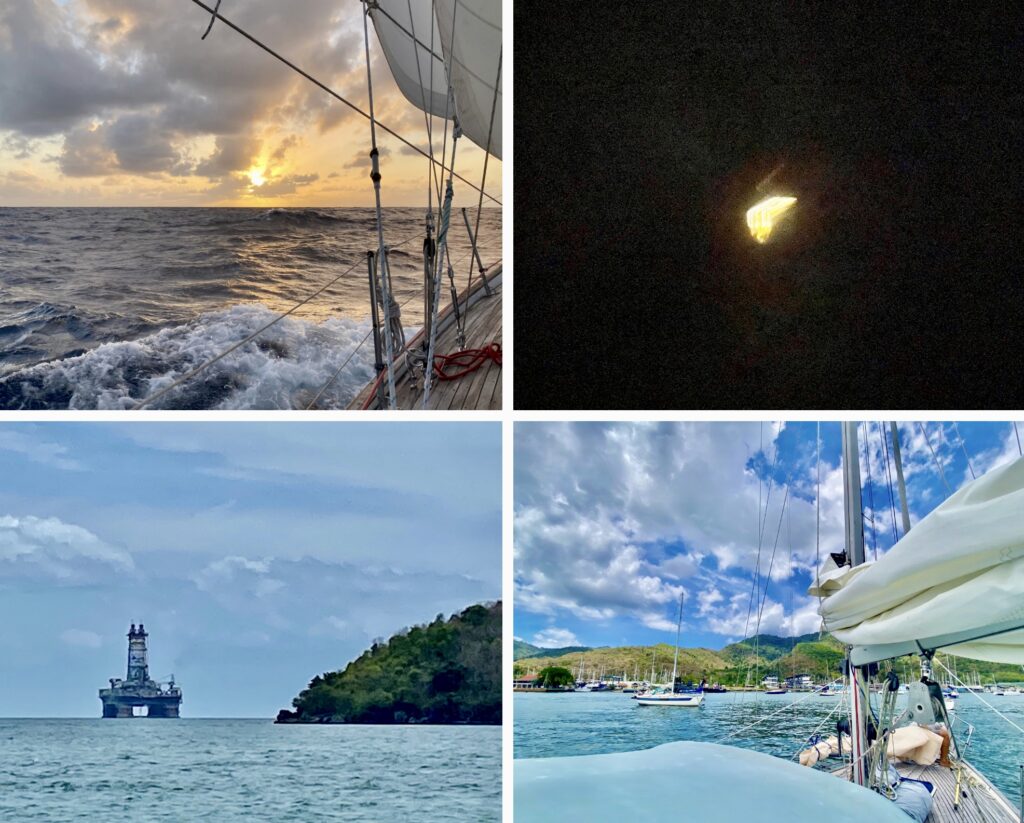
The very passage that started as a beautiful sailing dream ended up in an exhausting hull slumming torment.

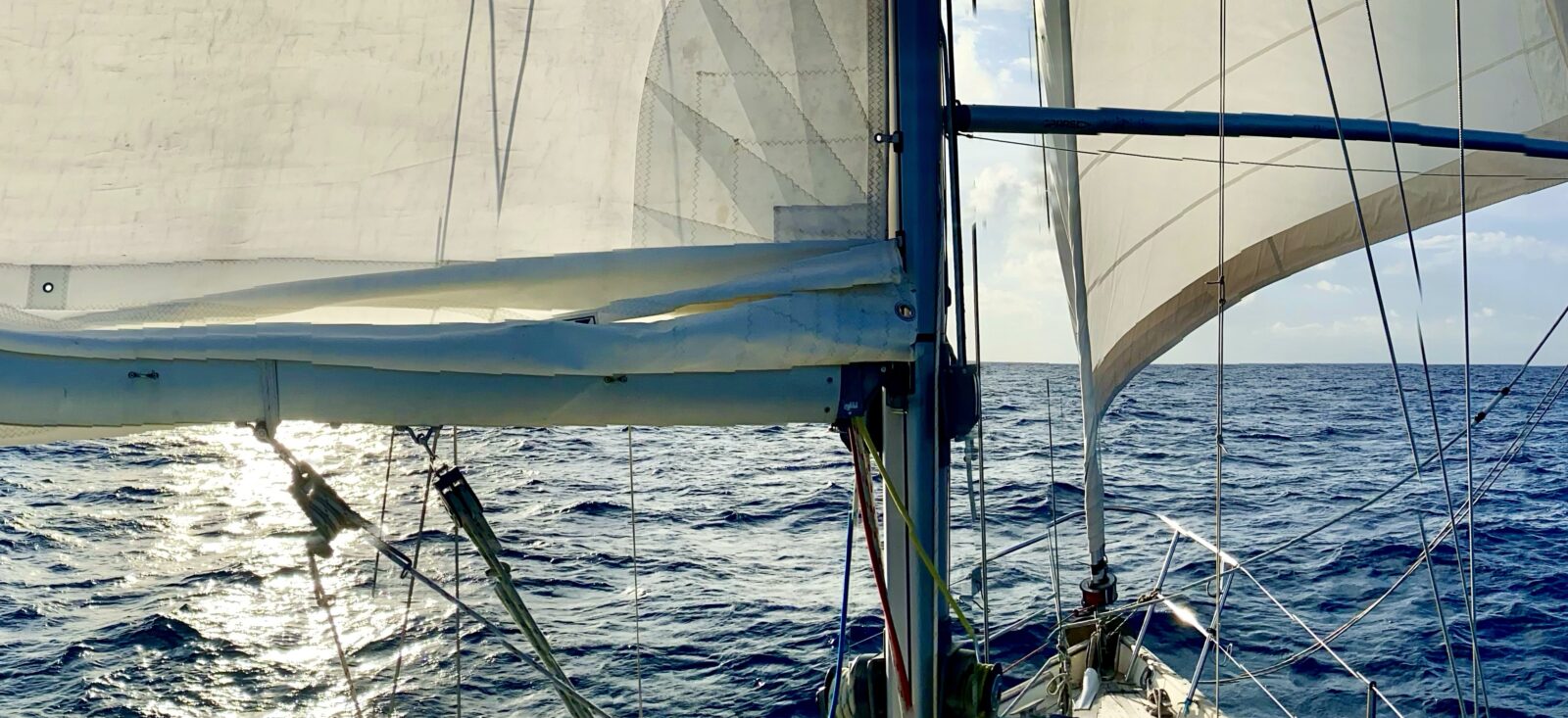
Time for a well earned rest! Enjoyed the blog, as always. Wishing you happy travels.
Thank you, guys. No yet…but soon!